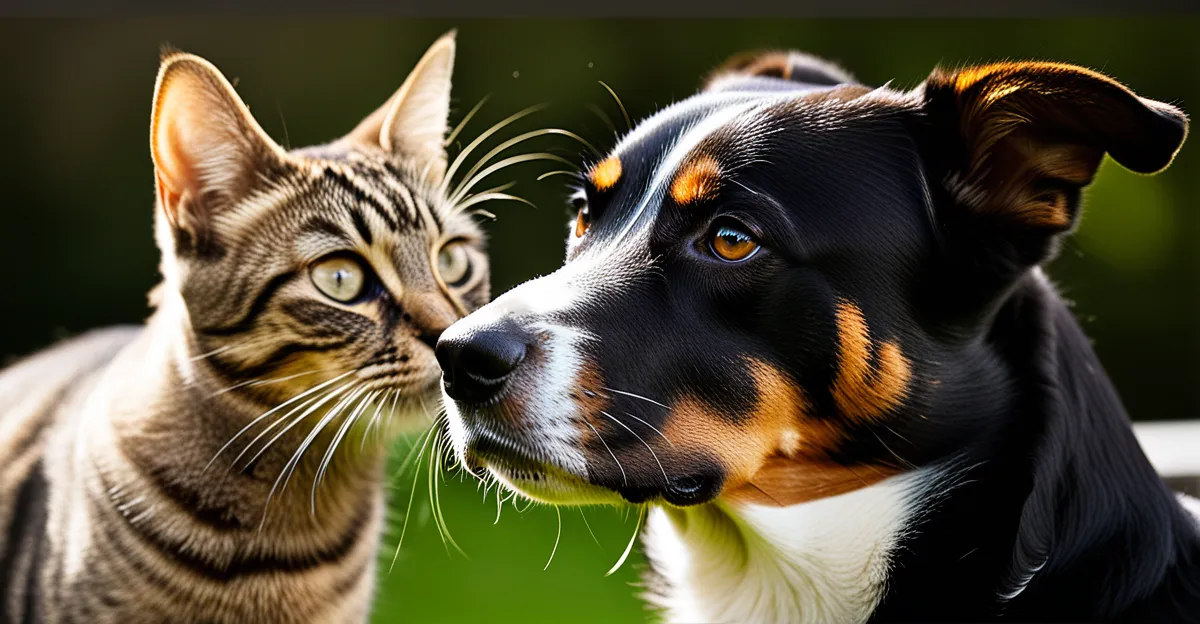Typical Behavioral Traits in UK Dogs
Dogs in the UK often exhibit distinct canine temperament traits shaped by both their breed characteristics and the British environment. Popular British dog breeds such as Labradors, Border Collies, and Cocker Spaniels commonly showcase strong friendliness and loyalty toward their owners and family members. This loyalty makes them excellent companions in typical UK households.
Energy levels vary, but many UK breeds are known for their playfulness and high activity levels, reflecting their historical roles—whether herding, hunting, or companionship. For instance, Border Collies display remarkable agility and stamina, thriving in both urban and rural British settings. Their adaptability allows them to fit well into diverse UK living environments, be it a city flat or countryside home.
Also to read : What Are the Essential Steps to Start a Pet-friendly Garden in the UK?
Social behaviours in UK dogs also emphasize positive interaction with humans and other pets. Many dogs in the UK are socialized from a young age, which enhances their ease of engagement with children and other animals, fostering harmony in multi-pet households. Understanding these behavioural traits helps owners provide suitable exercise, mental stimulation, and social opportunities tailored to the needs of their dog’s specific breed and temperament.
Characteristic Behaviours of UK Cats
Understanding UK cat behaviour requires examining their distinctive feline temperament, which often balances independence with occasional affectionate interactions. British domestic cats are known for their territoriality, frequently marking and defending a familiar area within their home or garden. This territorial instinct is stronger in outdoor-access cats but can also manifest indoors when space is limited. The territorial nature helps them feel secure but may lead to cautious or reserved behaviours around new animals or people.
Have you seen this : How Can You Choose the Perfect Pet for Your Home in the UK?
Many British cats display a nuanced range of affection, from openly cuddly to selectively aloof. Affectionate cats in the UK may seek close contact with their owners, demonstrating loyalty akin to that seen in British dog breeds, yet feline temperament often means these bonds are on their terms. This dynamic allows cats to adapt well to various indoor lifestyles while occasionally enjoying outdoor exploration. The ability to thrive in mixed environments reflects their flexible behaviour patterns.
Playfulness and stimulation needs vary across common UK cat breeds such as the British Shorthair or Maine Coon; these breeds benefit from interactive toys and activities that mimic hunting. Providing mental and physical stimulation aligns with their natural instincts and promotes healthy behaviour. Regular play sessions can help reduce typical feline boredom and prevent behaviour issues related to insufficient engagement. Overall, UK cat behaviour showcases a blend of independence, selective sociability, and adaptability to both indoor and outdoor living spaces.
Social and Environmental Influences on Pet Behaviour
Pet behaviour influences UK households significantly, shaped by factors such as environment and training. The typical British household provides a unique setting where pets—dogs, cats, and small mammals—adapt their behaviours based on both physical surroundings and owner interactions. For example, UK household pets exposed to consistent positive reinforcement training techniques often develop better social skills and reduced anxiety, highlighting the importance of behavioural conditioning.
Socialisation practices play a crucial role in promoting healthy pet behaviour influences UK-wide. Early exposure to various stimuli, including other animals and humans, encourages confidence and reduces fear-based responses. This is especially evident in dogs and cats, where well-structured socialisation prevents aggression and promotes cooperative interactions. Similarly, small mammals also benefit from gradual socialisation strategies tailored to their species-specific needs.
The UK lifestyle, with its balance between urban and rural settings, affects pet behaviour influences UK pets exhibit. Urban pets may face challenges like limited outdoor access, requiring owners to provide alternative enrichment and social time indoors. Conversely, rural environments offer more space but may introduce exposure to wildlife, affecting natural instincts and behaviours. Understanding these dynamics enables owners to tailor care practices and enhance their pet’s well-being in diverse British living environments.
Behavioural Patterns in Small Mammals Popular in the UK
Small mammal behaviour UK highlights distinct traits in species such as UK rabbits, guinea pigs, and pet rodents that are prized for their social and interactive qualities. UK rabbits typically exhibit a gentle and curious nature but can be territorial, preferring familiar environments and companions. This territoriality manifests through specific behaviours like thumping or gentle nipping when feeling threatened or unsettled. Understanding these signals is crucial for owners to maintain a calm and secure habitat.
Social interactions among popular small mammals often emphasize group housing tendencies. Guinea pigs, for example, are inherently social animals that thrive when kept in pairs or small groups. They communicate through a range of vocalizations and body language, which owners should learn to interpret to foster positive interactions. Hamsters, however, generally prefer solitary living, as excessive social contact can trigger stress or aggression, necessitating careful consideration of enclosure setups.
Responses to human handling vary across pet rodents and rabbits but share common themes of gradual acclimatization and enrichment requirements. Consistent gentle handling encourages trust and reduces anxiety, enabling bonding between pet and owner. Enrichment through tunnels, chew toys, and varied textures meets natural instincts while promoting active behaviour. Meeting these stimulation needs is essential to prevent boredom, which can lead to undesirable repetitive actions or withdrawal. Careful attention to small mammal behaviour UK ensures healthier, happier pets well-suited to the British pet-owning environment.











